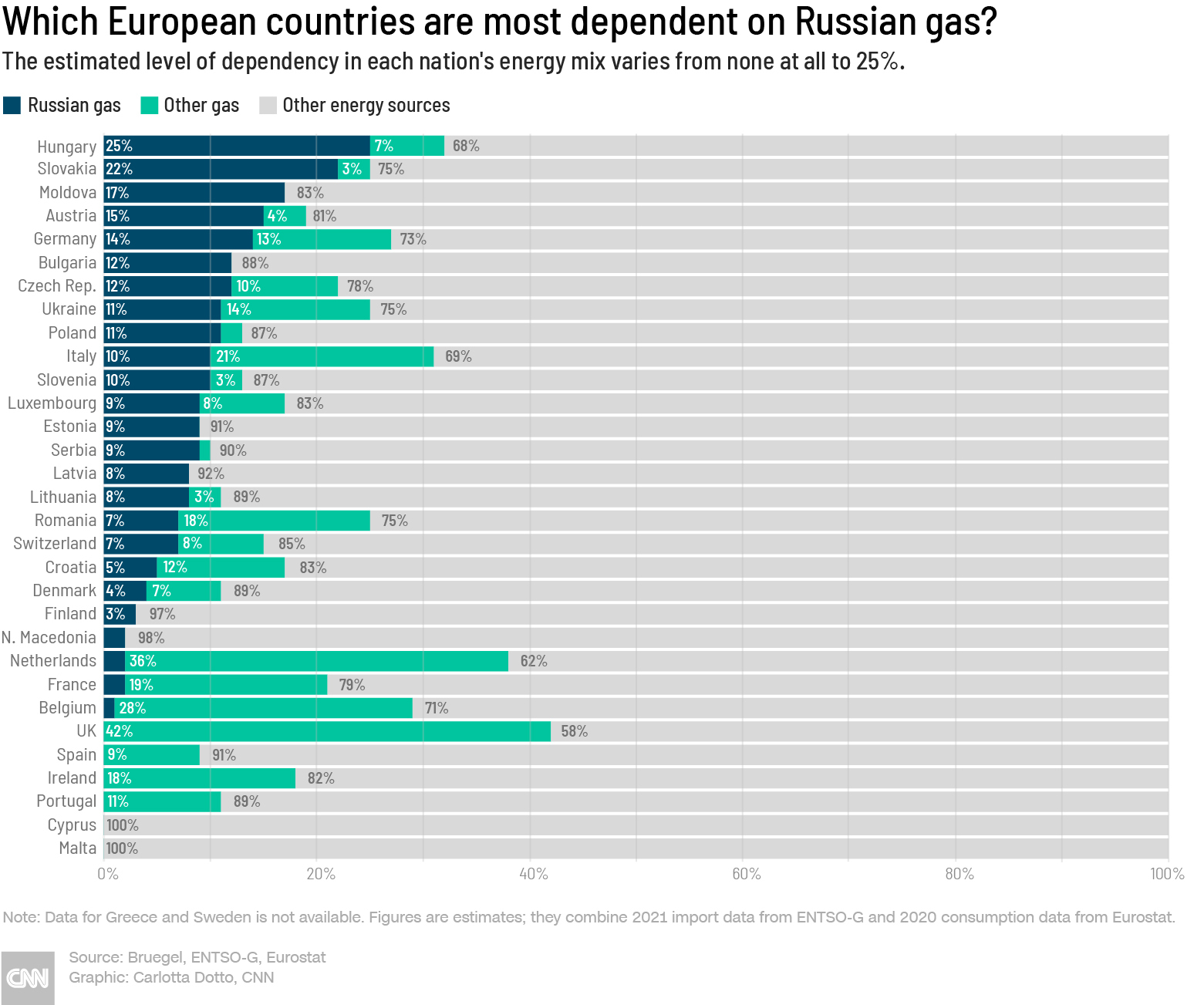Some European countries are heavily dependent on Russia for their gas supply.
European Commission President Ursula von der Leyen said earlier this month that EU leaders had agreed to spend the next two months drafting proposals for eliminating the bloc's dependency on Russian energy imports by 2027.
Germany, Russia's biggest energy customer in Europe, had already taken measures to address the Nord Stream 2 pipeline. But now it is responding to more concerns about possible gas shortage along with other countries.
Here's a look at actions some European countries are taking so far:
Germany: It has issued an "early warning" of possible natural gas shortages after Russia said it wanted to be paid in rubles and threatened to cut off supplies if that didn't happen.
"A payment with rubles is not acceptable," German economy minister Robert Habeck had said on Monday.
Speaking at a news conference in Berlin on Wednesday, he said that the warning stage was of a preventive nature and would see increased monitoring of gas supplies. He also called upon companies and consumers to use gas sparingly. German gas storage is currently filled to 25% capacity, according to Habeck.
"There are currently no supply shortages," he said. "Nevertheless, we must take further precautionary measures to be prepared for any escalation by Russia."
German Chancellor Olaf Scholz held a telephone conversation with his Russian counterpart Vladimir Putin later on Wednesday, and the German leader stressed that Berlin is committed to a G7 agreement that energy supplies from Russia would be paid for only in euros or US dollars, according to a German readout of the call.
Putin informed Scholz that the law that payments for Russian energy supplies would have to be made in rubles does not apply for European partners, and payments would continue to be made in euros and transferred to Gazprom Bank, which is not affected by sanctions, and then converted into rubles, according to the readout.
“Chancellor Scholz did not agree to this procedure in the conversation, but asked for written information to better understand the procedure,” the readout said.
Netherlands: The Dutch government asked the public to use less gas as it hopes to reduce its dependency on Russian imports, according to a spokesperson for the economy ministry. However, the Dutch government would not be triggering a gas crisis plan, spokesperson Tim van Dijk told CNN. Instead, the government hopes to reduce Dutch gas usage through a campaign addressing its citizens.
The campaign had been prepared for weeks in light of the war in Ukraine and was not launched in connection with Germany's decision to issue an "early warning" of possible natural gas shortages, van Dijk added.
Austria: It issued an "early warning" of possible natural gas shortages in the country, which also follows Russia demand to be paid in rubles and its threat to cut off supplies if its demand was not met.
Austrian climate minister Leonore Gewessler announced the warning following a government crisis meeting. The early-stage warning sees Austria take "the next step in the preparation for an emergency," Gewessler wrote on Twitter.
"We are monitoring the situation on the gas market even more closely & taking precautions to continue to ensure the supply of our households," the minister added.

"news" - Google News
March 31, 2022 at 02:54AM
https://ift.tt/DhuiwaY
Russia invades Ukraine: Live updates - CNN
"news" - Google News
https://ift.tt/bKdlx61
https://ift.tt/7ImB4UW
Bagikan Berita Ini














0 Response to "Russia invades Ukraine: Live updates - CNN"
Post a Comment